“We shouldn’t look at what happened here,” said Lourdes. “You should never look when you’re passing through Hell.” And with that in mind, Michael gritted his teeth until his face began to turn red.
“What are you doing?” asked Winston.
“Making the sky fall,” was his answer.
Up above the dense cloud-cover began to ripple. “If I can make myself feel fog on the inside, it’ll happen on the outside.”
“How do you feel fog?” asked Winston.
“Fog is confusion,” said Michael, through clenched teeth. “Just like anger is a lightning storm, and hopelessness is a rain of sleet.”
In a moment the clouds descended into the valley, sinking over their windshield until the entire town of Burton was shrouded in fog. Then an icy wind that could only be Michael’s fear hit them from behind, whistling past the car, and blowing the fog before them. The wind left a tunnel through the fog that followed the road to the center of town.
***
Downtown Burton had become a ghost town. The mad had long since disappeared into the woods—their anguished cries echoing across the valley like a thousand dispossessed souls. Michael slowly drove the van into the heart of havoc, but the fog could not hide everything. Through the mist, shadows of the dead seemed to stretch in all directions off the side of the road. The town’s fire- truck lay on its side. Shattered window-glass crackled beneath the wheels of the van.
At one point Winston got up on his knees and looked out of the window, toward a gas station, which could barely be seen through the fog. “Stop the car!” he said. Michael did, and they all watched as Winston pressed up against the car window, not daring to open it—as if the very air of this town was poisoned. Finally Winston said, “He was there . . . then he crossed the street. .." Winston pointed into the fog, “but where did he go from here?”
“Feels like he went straight on through town,” said Tory.
“I feel that, too,” concurred Lourdes.
They turned to Michael, but his struggle to maintain the fog didn’t leave room for him to feel much of anything else.
***
In another mile, Main Street faded behind them, and Michael lost control of the fog. The wind shifted the haze away through the woods, revealing a narrow country road ahead. They all breathed a sigh of relief, thinking the worst was over . . . until the road took a blind curve and they almost broadsided a pickup truck that sat diagonally across their lane.
Michael hit the brakes sharply, turned the wheel, and the van spun out of control, tires squealing, until they spun to a stop, narrowly missing the pickup.
It was the moment the van stopped that they began to feel a sense of presence that was so strong it bristled their neck hairs like static electricity.
“He’s still here!” said Tory. “Somewhere nearby!”
They quickly unlocked their doors and got out.
Once outside, the smell of smoke was strong and pungent. From the woods they could still hear the distant wails of the wandering mad, chasing each other through the timberland maze.
In front of them, the pickup truck barred their path; beside the truck lay a man, face-down in the mud, very much dead. In his hand he held a bloody fence picket. A crude arrow had caught him right in the jugular.
Michael turned away and leaned against a tree, gasping for breath. “I think I’m gonna puke,” he said.
“Don’t,” said Tory. “We might get hail.”
It was Lourdes who was able to get a sense of direction. She turned to the right and pointed to a house about a hundred yards further down the road.
“There . . .” she said. “I think he’s in there.”
They took action instantly. Lourdes stalked forward, ready to rely on her bare hands, but Tory had her own ideas. Grimacing, she grabbed the dead man’s picket from his stiff hand.
“Maybe if I stake him through the heart, it’ll sanitize his soul,” she said.
Michael pulled a crowbar from the pickup truck, “Maybe I can use this as a lightning rod,” he said.
Winston, still not knowing his hidden talent, reached into his coat and pulled out the revolver, taking off the safety. “No maybe’s about what this’ll do to him,” he said.
The dwelling seemed very innocent as they approached. Just a two-story country house.
“What if he’s armed, too?” said Michael. “What if he shoots us?”
“Then we die,” said Winston. The thought of dying in this town did not sit well with any of them. It would be better to die anywhere else but here.
The front door was slightly ajar, and they stood there on the porch for a quick moment, then burst in. Tory held her stake high, Michael gripped his crowbar in both hands, the sky already rumbling with his fury, and Winston aimed his gun at anything— anything that moved.
Inside the living room, a figure stood silhouetted against a window, holding something large and heavy in its arms.
Winston, his hands shaking, leveled the gun at the figure’s head.
The figure stepped closer, Tory and Michael froze, and Winston hesitated.
“Shoot!” shouted Lourdes. “Shoot now!”
Winston almost did, he pulled his finger back on the trigger halfway . . . but then hesitated . . . because there was something he suddenly remembered.
The figure stepped out of the shadows. It was a girl with long, black hair, and slightly Asian eyes.
There are six of us, thought Winston. Six! . . . and this one was not the destroyer.
Winston lowered the gun. Michael dropped the crowbar with a clang.
The girl held a young boy in her arms—about seven or eight years old. He wore a toy Indian headband on his head, and he clung to her as she approached them.
The girl glanced at Winston’s gun, but didn’t seem intimidated by it at all. In fact, she didn’t seem frightened by any of them. “Could one of you go into the kitchen and get a towel?” she asked calmly.
There was a foul smell in the air, and from the smell, they knew that the boy in her arms had soiled his pants. Tory put down the picket and hurried to find a towel.
“I’ve been waiting for you,” said the girl. “Dillon said you were dead, but I knew he was lying.”
“Dillon? That’s his name?” asked Winston. “The guy with red hair?”
“Yes. I’m Deanna.”
They introduced themselves as Tory returned with the towel. Then Deanna put the boy down on the sofa, cleaning him the way a mother would clean a baby—with tender care and patience.
“Who’s the kid?” asked Michael.
“Just a boy from town,” said Deanna. “He doesn’t seem to know his name, so I call him Carter, since that was the label on his shirt.”
When the boy looked up, they could see how truly terrible his eyes were. One of his pupils had closed down completely, and the other one was open wide and black.
“They all look like that once Dillon is done,” explained Deanna. “There’s not much we can do for them.”
She told them the story of how she met Dillon—the things they had done together, and how she finally broke free. She explained how the boy’s father was going to kill her with the bloody picket, but just before he brought the deadly spike down upon her chest, the man was hit by the arrow.
“I got him!” said the boy. “We were playing cowboys and Indians, and I got him good.”
Deanna cleaned the boy, and dressed him in oversized pants she found lying around the house. Tory took the soiled towel from Deanna, held it tightly in her hand, and the stench quickly vanished.
“You thought you were going to die, didn’t you?” Tory said as Deanna washed up. “You thought you were dying, so the thing living inside you panicked and ran away—the same thing happened to us—they got scared out of us!”
Читать дальше
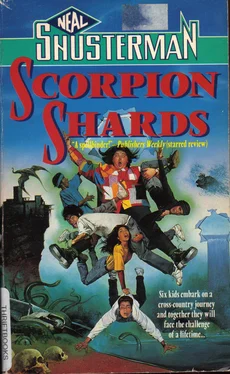
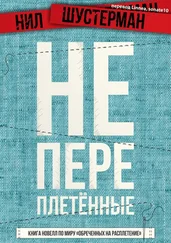
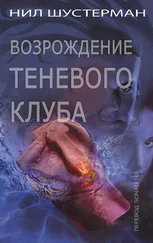
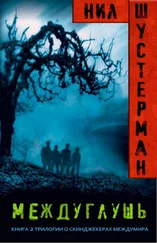
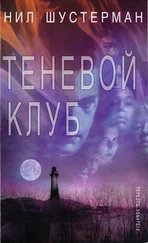
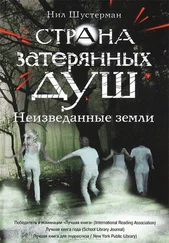
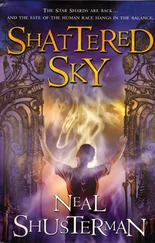
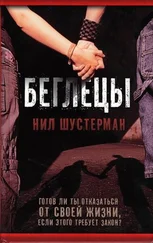
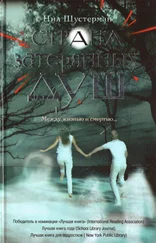

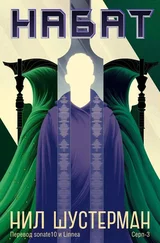
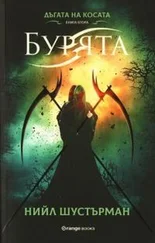
![Нил Шустерман - Жнец [litres]](/books/418707/nil-shusterman-zhnec-litres-thumb.webp)